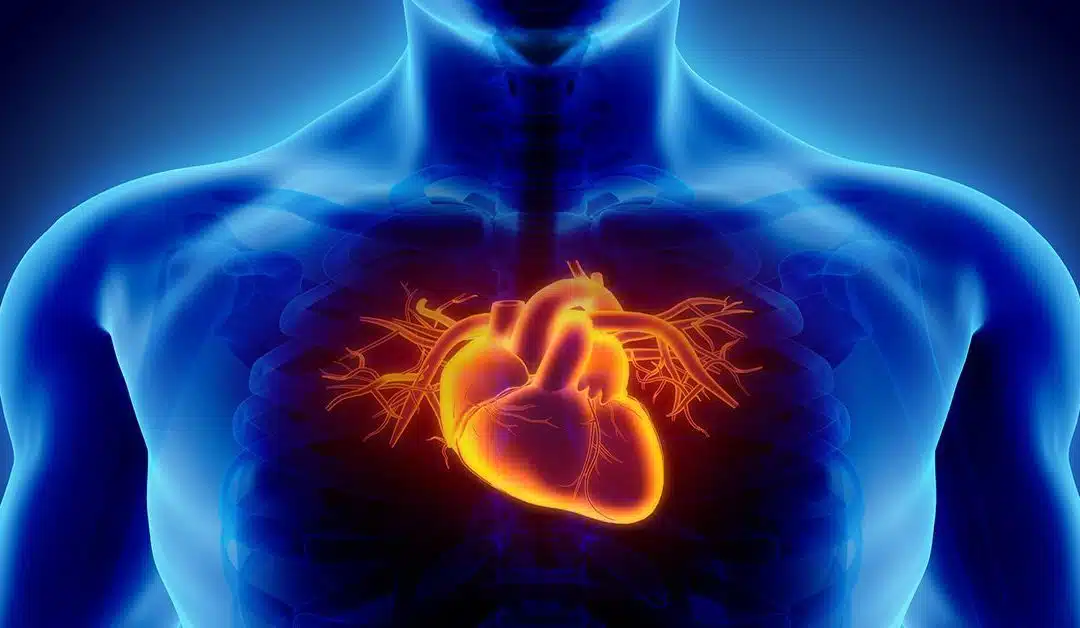The gut microbiome has gained significant attention in recent years. This intricate network of bacteria, fungi, and viruses plays a crucial role in our overall health and well-being. From aiding in digestion and nutrient absorption to supporting our immune system and even influencing our mood, the gut microbiome is a vital component of our body’s delicate balance.
In this article, I will explore the importance of maintaining a healthy gut microbiome and provide you with practical strategies to reset and optimize your digestive health. By understanding the intricacies of this internal ecosystem, you can take proactive steps towards achieving a harmonious balance, leading to improved overall well-being.
The Importance of a Healthy Gut Microbiome
A diverse and balanced gut microbiome is essential for optimal health [1]. When this delicate ecosystem is in harmony, it contributes to various aspects of our well-being, including:
- Digestion and nutrient absorption: The gut microbiome aids in breaking down complex foods, enabling efficient nutrient absorption and supporting overall digestive function.
- Immune system regulation: A significant portion of our immune system resides in the gut, and a healthy microbiome plays a vital role in modulating immune responses and protecting against pathogens.
- Mental health and mood regulation: Emerging research suggests a strong connection between gut health and mental well-being, often referred to as the “gut-brain axis.”
- Metabolic function: The gut microbiome influences metabolic processes, including the regulation of blood sugar levels, cholesterol, and weight management.
By maintaining a diverse and balanced gut microbiome, we can support these essential functions and promote overall health and vitality.
What is Dysbiosis and how does it Affect Your Gut Health
Dysbiosis, a term used to describe an imbalance in the gut microbiome, can have far-reaching consequences on our overall health. When the delicate balance of beneficial and potentially harmful microorganisms is disrupted, it can lead to various issues.
- Digestive issues: Bloating, constipation, diarrhea, and abdominal discomfort are common signs of an imbalanced gut.
- Inflammation: An imbalanced gut microbiome can trigger inflammation throughout the body, contributing to conditions like inflammatory bowel diseases (IBD), rheumatoid arthritis, and even neurological disorders.
- Impaired nutrient absorption: Dysbiosis can hinder the proper breakdown and absorption of essential nutrients, leading to potential health issues.
- Compromised immune function: The gut microbiome plays a crucial role in training and regulating the immune system. An imbalance can weaken our defenses against pathogens and increase susceptibility to infections.
- Metabolic disturbances: Dysbiosis can disrupt metabolic processes, contributing to conditions like obesity, type 2 diabetes, and cardiovascular diseases.
- Mental health concerns: The gut-brain connection is strong, and an imbalanced gut microbiome has been linked to anxiety, depression, and other mental health issues.
Recognizing these signs and addressing dysbiosis is essential for restoring gut health and promoting overall well-being. By implementing strategies to reset and optimize the gut microbiome, we can reduce these potential adverse effects and support our body’s natural balance.
Resetting Your Gut Microbiome Through Diet
One of the most effective ways to reset and optimize your gut microbiome is through dietary modifications [1]. The foods we consume can significantly impact the composition and diversity of our gut bacteria. Here are some dietary strategies to consider:
- Increase fiber intake: Fiber is the primary fuel source for beneficial gut bacteria. Aim to incorporate a variety of high-fiber foods, such as fruits, vegetables, whole grains, legumes, and seeds, into your diet.
- Embrace fermented foods: Fermented foods like yogurt, kefir, sauerkraut, kimchi, and kombucha are rich in beneficial probiotics that can help replenish and diversify your gut microbiome.
- Limit processed and high-sugar foods: Processed and sugary foods can promote the growth of harmful bacteria and contribute to dysbiosis. Opt for whole, nutrient-dense foods instead.
- Incorporate prebiotic-rich foods: Prebiotics are types of dietary fiber that nourish and support the growth of beneficial gut bacteria. Good sources include onions, garlic, bananas, and whole grains.
- Hydrate adequately: Proper hydration is essential for optimal digestive function and the maintenance of a healthy gut microbiome.
Remember, dietary changes may take time to show results, so be patient and consistent in your approach.
Incorporating Probiotics into Your Routine
Probiotics are live microorganisms that, when consumed in adequate amounts, can provide numerous health benefits by supporting a balanced gut microbiome [2]. Here are some ways to incorporate probiotics into your routine:
- Probiotic supplements: High-quality probiotic supplements can introduce beneficial strains of bacteria into your gut. Look for products containing diverse strains and consult with a healthcare professional for dosage recommendations.
- Fermented foods: As mentioned earlier, fermented foods like yogurt, kefir, sauerkraut, and kimchi are natural sources of probiotics and can be easily incorporated into your diet.
- Probiotic beverages: Kombucha, a fermented tea, and probiotic-fortified juices or smoothies can provide a convenient way to consume probiotics.
It’s important to note that individuals may respond differently to various probiotic strains, so it may take some experimentation to find the ones that work best for you. To promote diversity in your gut microbiome, consider rotating different probiotic sources and strains periodically.
The Role of Exercise in Optimizing Your Gut Health
While diet plays a crucial role in shaping the gut microbiome, exercise is another vital component in optimizing gut health [3-5]. Regular physical activity can have a positive effect on the composition and diversity of gut bacteria. Here’s how exercise can contribute to a healthier gut:
- Increased microbial diversity: Exercise has been shown to promote the growth and diversity of beneficial gut bacteria, leading to a more balanced microbiome.
- Reduced inflammation: Regular exercise can help reduce systemic inflammation, which is often associated with gut dysbiosis and various chronic diseases.
- Improved gut motility: Physical activity can stimulate the natural contractions of the digestive system, promoting regular bowel movements and preventing constipation.
- Stress reduction: Exercise is an effective stress management tool, and reduced stress levels can positively impact gut health by reducing the production of stress hormones that can disrupt the microbiome.
- Weight management: By supporting a healthy weight, exercise can indirectly contribute to a balanced gut microbiome, as obesity has been linked to dysbiosis.
Incorporating a variety of exercise types, such as aerobic activities, strength training, and mindfulness practices like yoga or tai chi, can provide comprehensive benefits for your gut health and overall well-being.
Lifestyle Changes for a Healthy Gut Microbiome
In addition to diet and exercise, making additional lifestyle changes can significantly contribute to optimizing your gut microbiome. Here are some lifestyle modifications to consider:
- Stress management: Chronic stress can disrupt the delicate balance of the gut microbiome [6]. Incorporate stress-reducing practices like meditation, deep breathing exercises, or engaging in hobbies you enjoy.
- Adequate sleep: Lack of sleep can negatively impact gut health. Aim for 7-9 hours of quality sleep per night to support a healthy microbiome [7].
- Limit antibiotic use: Antibiotics can indiscriminately kill both harmful and beneficial bacteria in the gut. Use them judiciously and consider replenishing your gut with probiotics after a course of antibiotics.
- Minimize exposure to toxins: Environmental toxins, such as pesticides, heavy metals, and air pollution, can contribute to gut dysbiosis. Opt for organic produce, filter your water, and minimize exposure to pollutants whenever possible.
- Cultivate social connections: Social interactions and a strong support system can positively impact mental health, which in turn can benefit gut health through the gut-brain axis.
Maintaining a Healthy Gut Microbiome long-term
Resetting and optimizing your gut microbiome is a journey, not a one-time event. To maintain a healthy gut microbiome in the long term, it’s crucial to adopt a sustainable approach that incorporates the strategies discussed throughout this guide. Here are some tips for maintaining a balanced gut microbiome:
- Consistency: Stick to a balanced diet rich in fiber, prebiotics, and probiotic-rich foods. Consistency is key to supporting a diverse and thriving gut microbiome.
- Lifestyle habits: Prioritize stress management, adequate sleep, regular exercise, and minimizing exposure to toxins and antibiotics.
- Periodic probiotic support: Consider incorporating probiotic supplements or fermented foods periodically to replenish and diversify your gut bacteria.
- Monitor your progress: Pay attention to your body’s signals and how you feel after implementing these strategies. Adjustments may be necessary based on your individual response.
- Seek professional guidance: If you experience persistent gut-related issues or have specific health concerns, consult with a healthcare professional or a registered dietitian for personalized guidance.
Final Thoughts
Through dietary modifications, incorporating probiotics, embracing regular exercise, and adopting a holistic lifestyle approach, you can reset and nourish your gut microbiome. This, in turn, can lead to improved digestion, nutrient absorption, immune function, mental well-being, and overall vitality. Maintaining a healthy gut microbiome is a lifelong journey, and small, consistent steps can lead to significant improvements in your overall well-being. If you’re ready to embark on a journey towards optimal gut health, I have included a list of high-quality probiotic supplements and gut-supporting products along with the reviews of these products that you may find useful.
Remember, every individual’s gut microbiome is unique, and it may take some experimentation to find the approach that works best for you. Consistency, patience, and a willingness to make sustainable lifestyle changes are key to achieving and maintaining a healthy gut microbiome. It is always advisable to talk with a medical professional if you are going to make any major dietary changes, major lifestyle changes or begin taking supplements, especially if you have any existing health conditions. Healthcare professionals can provide personalized advice based on your individual needs and health status.
Sources
[1] Valdes A M, Walter J, Segal E, Spector T D. (2018). Role of the gut microbiota in nutrition and health BMJ. 361:k2179 https://doi.org/10.1136/bmj.k2179
[2] Wang, X., Zhang, P., & Zhang, X. (2021). Probiotics Regulate Gut Microbiota: An Effective Method to Improve Immunity. Molecules (Basel, Switzerland), 26(19), 6076. https://doi.org/10.3390/molecules26196076
[3] Allen, J. M., Mailing, L. J., Niemiro, G. M., Moore, R., Cook, M. D., White, B. A., Holscher, H. D., & Woods, J. A. (2018). Exercise Alters Gut Microbiota Composition and Function in Lean and Obese Humans. Medicine and science in sports and exercise, 50(4), 747–757. https://doi.org/10.1249/MSS.0000000000001495
[4] Clauss M, Gérard P, Mosca A and Leclerc M (2021) Interplay Between Exercise and Gut Microbiome in the Context of Human Health and Performance. Front. Nutr. 8, 637010. https://doi.org/10.3389/fnut.2021.637010
[5] Dziewiecka, H., Buttar, H.S., Kasperska, A. et al. (2022). Physical activity induced alterations of gut microbiota in humans: a systematic review. BMC Sports Sci Med Rehabil 14, 122. https://doi.org/10.1186/s13102-022-00513-2
[6] Madison, A., & Kiecolt-Glaser, J. K. (2019). Stress, depression, diet, and the gut microbiota: human-bacteria interactions at the core of psychoneuroimmunology and nutrition. Current opinion in behavioral sciences, 28, 105–110. https://doi.org/10.1016/j.cobeha.2019.01.011
[7] Matenchuk, B. A., Mandhane, P. J., & Kozyrskyj, A. L. (2020). Sleep, circadian rhythm, and gut microbiota. Sleep medicine reviews, 53, 101340. https://doi.org/10.1016/j.smrv.2020.101340
https://www.healthline.com/health/digestive-health/3-day-gut-reset
https://www.healthline.com/health/gut-health
https://www.medicalnewstoday.com/articles/3-day-gut-reset
https://www.utphysicians.com/reset-your-gut-for-optimal-health/
https://moceanpt.com/how-to-reset-your-gut-naturally/
https://www.uclahealth.org/news/article/resetting-gut-microbiome-is-a-long-term-project
https://www.healthyfood.com/advice/10-ways-to-reset-you-gut-health/
https://detoxkitchen.co.uk/health/how-to-reset-your-gut-health
https://healthpath.com/gut-health/restore-gut-flora/
https://www.piedmont.org/living-real-change/10-tips-for-a-healthier-gut








